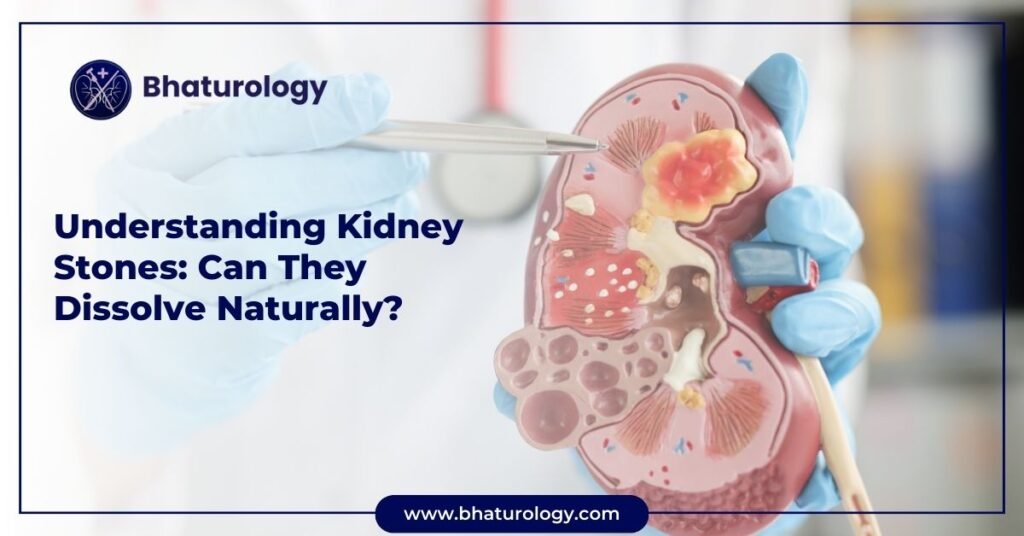Kidney stones are a common and painful condition affecting millions of people worldwide. They occur when minerals and salts in the urine crystallize and form solid masses in the kidneys. Understanding the nature of kidney stones and exploring their potential for natural dissolution can provide valuable insights into managing this condition.
What Are Kidney Stones?
Kidney stones are hard deposits from minerals and salts that accumulate in the kidneys. They vary in size and shape and can be as small as a grain of sand or as large as a golf ball. The primary types of kidney stones include:
- Calcium Stones: The most common type, usually made of calcium oxalate or calcium phosphate.
- Struvite Stones: Often associated with urinary tract infections, these stones can increase and become large.
- Uric Acid Stones: Formed when urine is too acidic, often related to a diet high in purines.
- Cystine Stones: Rare and caused by a genetic disorder that results in excessive cystine in the urine.
Kidney stones can cause severe pain, significantly, if they obstruct the urinary tract. Symptoms may include intense pain in the back or side, hematuria (blood in the urine), frequent urination, and nausea or vomiting.
Can They Dissolve on Their Own?
The ability of kidney stones to dissolve naturally depends on their size and composition. Here’s a breakdown of how different types of kidney stones may respond to natural dissolution:
- Calcium Stones: Small calcium stones may dissolve naturally or pass through the urinary tract with increased fluid intake and dietary changes. Drinking plenty of water helps dilute the urine and flush out small stones. Reducing dietary oxalate and increasing calcium intake can be beneficial for calcium oxalate stones.
- Struvite Stones: Struvite stones are less likely to dissolve independently due to their composition and rapid growth. They often require medical intervention to break up or remove the rocks, mainly if they cause infection or obstruction.
- Uric Acid Stones: Uric acid stones may dissolve with changes in diet and medications. Increasing fluid intake and consuming a diet low in purines (found in red meat and shellfish) can help. Alkalizing the urine with drugs can also aid in dissolving uric acid stones.
- Cystine Stones: Cystine stones are challenging to dissolve naturally due to their chemical composition. Treatment often involves medications to reduce cystine levels in the urine and dietary changes to manage the condition.
In many cases, natural methods such as increased hydration and dietary adjustments can help manage or prevent kidney stones, especially if they are small and do not cause significant symptoms. However, larger stones or those causing complications typically require medical treatment.
Ready to Address Urinary Concerns? Consult Excel Urology Today
If you are experiencing symptoms of kidney stones or have concerns about your urinary health, it is crucial to seek professional medical advice. Our team of experienced urologists at Excel Urology can provide comprehensive evaluation, diagnosis, and treatment options tailored to your needs.
Contact us today to schedule a consultation and take the first step towards effectively managing kidney stones and other urinary concerns. Our experts help you navigate your condition and find the best solutions for your health and well-being.



